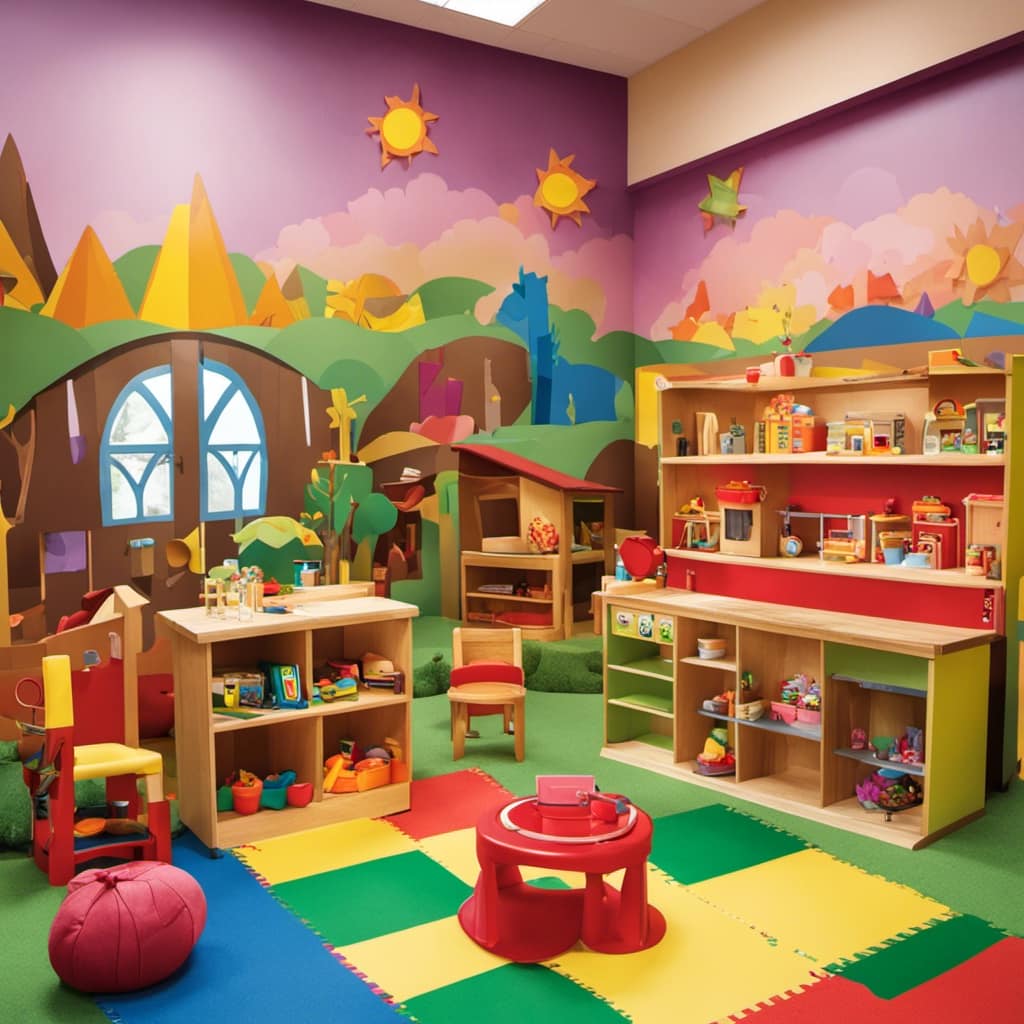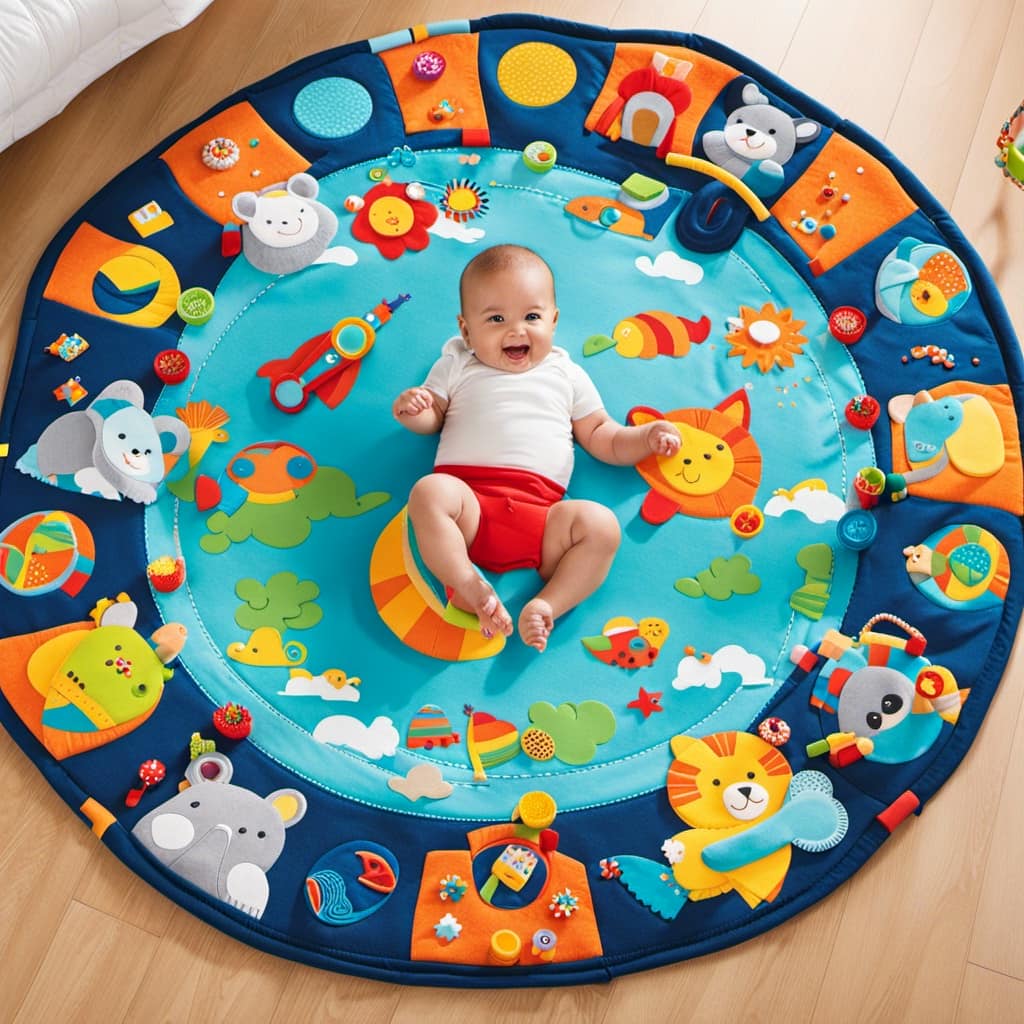As a parent, I have observed the alarming impact of technology on my child’s development.
Excessive screen time has hindered their cognitive growth, affecting problem-solving skills, critical thinking, and creativity.
The lack of active problem-solving has made it difficult for them to tackle real-life challenges.
Furthermore, technology has limited their imagination and creativity, hampering their overall development.
Not only that, but their social skills have suffered due to limited face-to-face interaction, hindering communication and understanding of emotions.
It’s crucial that we find a balance between technology use and healthy child development to address these issues.

Key Takeaways
- Excessive screen time hinders problem-solving skills in children
- Technology limits critical thinking and creative solutions
- Limited face-to-face interaction hinders communication skills
- Increased risk of obesity and associated health risks
Impact on Cognitive Development
Excessive screen time hinders my problem-solving skills and limits my critical thinking abilities. Research shows that technology can impair critical thinking and limit creativity in children.
When we spend too much time on screens, we miss out on opportunities to engage in active problem-solving, which is crucial for developing real-life problem-solving skills. Additionally, excessive screen time can hinder face-to-face interaction and social problem-solving, as we become more reliant on technology for communication.
This lack of interaction restricts our imagination and creative expression. Without the ability to think critically and creatively, we may struggle to come up with innovative solutions to challenges we face in our daily lives.
It is important to find a balance between screen time and other activities that promote critical thinking and creativity.
Negative Effects on Social Skills
Limited face-to-face interaction hinders my ability to develop strong communication skills and understand nonverbal cues. Research shows that reduced exposure to nonverbal cues, such as facial expressions and body language, can impair our understanding of emotions and hinder effective communication.
When we rely heavily on technology for communication, we miss out on the richness of face-to-face interactions where we can pick up on subtle cues and nuances. This can lead to misunderstandings, misinterpretations, and difficulties in forming meaningful connections with others.

Nonverbal cues play a crucial role in conveying emotions, building rapport, and establishing trust in relationships. Without regular face-to-face interactions, we may struggle to accurately interpret and respond to nonverbal cues, which are essential for effective communication and social skills development.
Emotional Development Challenges
I struggle with controlling my emotions and often experience impulsivity and emotional outbursts. These challenges in emotional development can have significant impacts on one’s ability to form and maintain healthy relationships.
Here are four ways in which emotional development challenges can manifest:
-
Fear of relationships: Due to past experiences or a lack of trust, individuals may develop a fear of forming close relationships. This fear can hinder the ability to connect with others on an emotional level.
-
Withdrawal from interactions: Difficulty controlling emotions may lead individuals to withdraw from social interactions. This withdrawal can stem from a fear of being judged or rejected, making it challenging to engage in meaningful connections with others.
-
Impaired social skills: Emotional development challenges can hinder the development of effective communication and social problem-solving skills. This can make it difficult to navigate social situations and understand others’ emotions.

-
Emotional instability: The struggle to control emotions can result in emotional outbursts and impulsivity. These behaviors can strain relationships and make it challenging to establish and maintain healthy connections with others.
Understanding and addressing these emotional development challenges is crucial for fostering healthy relationships and overall well-being.
Decreased Physical Activity
Engaging in regular physical activity is essential for maintaining a healthy lifestyle and promoting overall well-being. However, decreased physical activity, especially in children, has become a concerning issue due to the negative impact it has on various aspects of development. Not only does it increase the risk of chronic diseases like obesity, heart disease, and diabetes, but it also affects academic performance. Research shows that children who are physically active tend to have better cognitive abilities, including improved attention span, memory, and problem-solving skills. On the other hand, a sedentary lifestyle can lead to developmental delays in fine motor skills and impaired overall development and well-being. It is crucial to encourage children to engage in physical activities to mitigate the negative consequences and promote their optimal growth and development.
| Negative Effects of Decreased Physical Activity |
|---|
| Impact on Academic Performance |
| Increased Risk of Chronic Diseases |
| Developmental Delays in Fine Motor Skills |
| Impaired Overall Development and Well-being |
Sedentary Lifestyle Effects
Excessive sedentary behavior leads to a decline in physical health and negatively affects various aspects of overall well-being. The long-term consequences of a sedentary lifestyle are significant and can have lasting effects on our overall well-being.
Here are four ways in which a sedentary lifestyle can impact our overall well-being:
-
Physical health decline: Lack of physical activity increases the risk of obesity, heart disease, and diabetes. It also weakens muscles and bones, leading to poor physical development.

-
Cognitive and emotional development: Sedentary behavior hinders cognitive and emotional development. It can lead to developmental delays in fine motor skills and impair attention span, memory, and problem-solving skills.
-
Mental health issues: A sedentary lifestyle is associated with increased anxiety, depression, and social isolation. Lack of physical activity can have a negative impact on our mental well-being.
-
Impaired overall development: Ultimately, a sedentary lifestyle can impair our overall development and well-being. It is important to prioritize regular physical activity to maintain a healthy lifestyle and prevent the negative effects of excessive sedentary behavior.
Impaired Problem-Solving Skills
Reduced exposure to problem-solving opportunities through excessive screen time limits my ability to think critically and find creative solutions.
Research shows that prolonged use of technology impairs critical thinking and hampers creativity in children.
When children spend excessive time in front of screens, they miss out on real-life challenges that require active problem-solving. This lack of engagement can have long-term effects on their ability to think critically and find innovative solutions to problems.

Additionally, excessive screen time restricts imagination and creative expression, limiting their capacity to think outside the box and come up with unique ideas.
It is essential to strike a balance and provide children with ample opportunities for hands-on problem-solving experiences to foster their critical thinking skills and nurture their creativity.
Limited Communication Skills
I struggle to effectively communicate with others due to my limited exposure to face-to-face interactions and nonverbal cues. This has led to various communication barriers and social isolation in my life.
Here are four key ways in which limited communication skills can impact individuals:
-
Misunderstandings: Without being able to observe nonverbal cues, it becomes difficult to accurately interpret others’ emotions and intentions, leading to misunderstandings and conflict.
-
Lack of empathy: Limited face-to-face interaction hinders the development of empathy, making it challenging to understand and relate to others’ emotions and experiences.

-
Difficulty expressing oneself: The absence of regular face-to-face communication can hinder the development of effective verbal and nonverbal communication skills, making it hard to express oneself clearly and confidently.
-
Isolation: Social isolation can result from limited communication skills, as it becomes harder to form and maintain meaningful relationships with others.
In order to overcome these challenges, it is important to actively seek opportunities for face-to-face interactions and practice effective communication skills.
Emotional Instability
Emotional instability can lead to difficulties in regulating emotions and forming trusting relationships.
Emotional regulation is the ability to manage and control emotions in a healthy way.
Trust issues stem from a lack of confidence in others due to past experiences or fears of being hurt or betrayed.

Research has shown that individuals who struggle with emotional instability often find it challenging to regulate their emotions effectively. This can result in impulsive behavior, emotional outbursts, and difficulty managing stress.
Additionally, trust issues can make it difficult to form close and meaningful relationships. The fear of being hurt can hinder one’s ability to fully trust others.
It is important to seek support and develop healthy coping strategies to address emotional instability and trust issues. This is crucial for overall well-being and the formation of healthy relationships.
Health Risks and Developmental Delays
Excessive screen time hinders problem-solving skills and can lead to developmental delays and health risks.
-
Prolonged use of technology impairs cognitive development in children, limiting their critical thinking and creative problem-solving abilities.
-
Lack of active problem-solving through real-life challenges can hinder their ability to tackle difficult situations.

-
Excessive screen time also hampers face-to-face interaction and social problem-solving skills, as technology restricts imagination and creative expression.
-
Additionally, the sedentary nature of screen time reduces physical activity, increasing the risk of obesity and associated health risks.
These health risks, combined with the negative impact on attention span, memory, and problem-solving skills, can lead to developmental delays.
It is crucial to find a balance and limit screen time to ensure children’s healthy development.
Frequently Asked Questions
What Are Some Strategies Parents Can Use to Limit Their Child’s Screen Time and Encourage Problem-Solving Skills?
To limit screen time and encourage problem-solving skills, I recommend setting clear boundaries, creating tech-free zones, and providing alternative activities. It’s important to promote critical thinking, creativity, and hands-on problem-solving to foster healthy development.
How Can Parents Help Their Children Develop Strong Social Skills Despite the Limitations of Technology?
To help children develop strong social skills despite technology limitations, parents can encourage offline friendships through playdates and extracurricular activities. Balancing technology use with outdoor play promotes face-to-face interactions and fosters communication and problem-solving skills.

Are There Any Specific Activities or Exercises That Can Help Improve Emotional Regulation in Children Who Spend a Lot of Time With Technology?
There are various activities and exercises that can help improve emotional regulation in children who spend a lot of time with technology. These specific activities and exercises can be effective in improving emotional regulation in children who are exposed to technology.
What Are Some Alternative Ways for Children to Stay Physically Active and Reduce the Negative Effects of Excessive Screen Time?
To reduce negative effects of excessive screen time, children can engage in outdoor play and creative hobbies. These activities promote physical activity, imagination, and social interaction, fostering healthy development and minimizing technology’s impact.
Can Technology Be Used in a Beneficial Way to Support Child Development, or Is It Always Detrimental?
Technology can be used in beneficial ways to support child development. Educational technology, when used appropriately, can enhance learning, improve critical thinking skills, and provide access to a wealth of educational resources.
Conclusion
In conclusion, the negative impact of technology on child development is a pressing concern that requires immediate attention.
While technology offers numerous benefits, it cannot replace the essential aspects of healthy child development.
The juxtaposition of the convenience and allure of technology with its detrimental effects on cognitive, social, and emotional development highlights the need for balance.

By prioritizing face-to-face interactions, promoting physical activity, and limiting screen time, we can mitigate the adverse effects of technology and foster holistic development in children.
It is crucial for parents, educators, and policymakers to recognize the importance of finding this balance for the well-being of our children.











